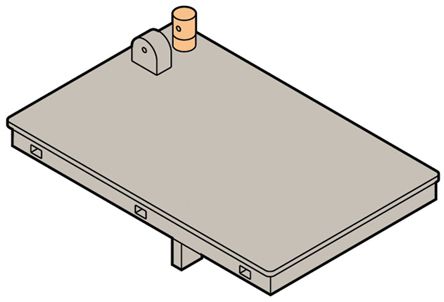
Brand
- M&S Collection 4.426
- MTP Products 1.841
- Stanley 1.723
- Russell 1.410
- Uneek 1.118
- ORN 1.095
- Mascot 1.000
- Gildan 833
- Selfmade 814
- Regatta Professional 804
- 13093 794
- Fruit Of The Loom 794
- SOL'S 721
- Sandvik Coromant 654
- Regatta 644
- Build Your Brand 629
- YouGarden 588
- Portwest 585
- Harry Corry 546
- B&C Collection 543
- Pour Moi 541
- White Stuff 499
- Beeswift 441
- Cyberjammies 422
- Joules 421
- Anthem 411
- FatFace 406
- The Home Maker 398
- Boux Avenue 389
- Stedman 349
- Madeira 332
- Posters Online - Postery.com 330
- Larkwood 329
- Co 322
- CraftifulOils 321
- AWDis Academy 317
- Mantis 299
- Mamas & Papas 297
- Printer Essentials 296
- Kariban 295
- Scarthingwell 293
- Liverpool FC 269
- Reiss 264
- Peel & Paper 252
- Lyle & Scott 228
- Clarks 221
- Polarn O. Pyret 221
- Asquith & Fox 218
- IWTBAG 218
- Lighthouse 215
- Monsoon 210
- Babybugz 208
- CARREMENT BEAU 208
- Leitz 208
- HP 203
- SF 195
- Rosie 194
- Festive 188
- Steam 185
- Dollymix 182
- Timberland 182
- Freya 181
- Unibos 178
- Merkel Designers 177
- Sealey 177
- Mobility Smart 174
- JACK & JONES JUNIOR 173
- Panache 172
- Sloggi 170
- Bella+Canvas 169
- Early Learning Centre 169
- Fantasie 167
- Dunlop 166
- Faithfull 164
- Schutzinger 161
- JoJo Maman Bébé 157
- Dell 153
- Hirschmann Test & Measurement 152
- Golden Valley Plants 151
- Kids Only 150
- RS PRO 147
- Jack & Jones 146
- ACCESSORIZE 145
- Gedore 144
- Notch 144
- Perkupyourday 144
- Craftiful Fragrance Oils 143
- JACK & JONES 141
- Seasalt Cornwall 138
- Kennedy 134
- Just Ts 133
- Premier 128
- Just Polos 127
- B by Boutique 126
- Routledge 126
- Crew Clothing 122
- Daler-Rowney 122
- Staubli 122
- Garden Plants Online 121
- Abus 117
Colour
- Black 3.279
- black 1.981
- White 1.812
- white 1.254
- Blue 1.135
- Navy 989
- Pink 834
- Red 724
- navy 708
- red 681
Size
- XL 2.298
- 2XL 1.914
- one size 1.765
- Medium 1.747
- Large 1.732
- Small 1.692
- XS 1.354
- 3XL 1.335
- S 770
- M 748
Gender
Merchant
- Zoro UK 20.157
- Marks & Spencer UK 13.720
- Workwear Supermarket 3.277
- MyTrendyPhone.co.uk 2.483
- Home Done 2.030
- Zoro UK Limited 1.534
- RS Components UK 1.527
- K4G.COM 1.377
- Selfmade.com 1.128
- JustHype UK 794
- QD Stores 755
- YouGarden 588
- Perfect Little Thing 576
- Epoka AS 562
- Harry Corry 546
- Cowling & Wilcox 526
- Kids around 520
- Suit Direct 487
- Craftiful Fragrance Oils 464
- M&S UK 418
- Plusshop UK [OLD] 361
- Postery.com 330
- Mobility Smart 293
- Erysta 269
- Liverpool FC 269
- Cherry Lane 260
- Peel & Paper 252
- Lyle & Scott 220
- I want to buy a gift 218
- havens.co.uk 216
- Acorn Fire & Security 199
- Gordons Direct 195
- Golden Valley Plants 192
- uk.plusshop.com 180
- Unibos Store 178
- Building Plastics Online 170
- Grace & Co Jewellery 160
- Cloving.co.uk 158
- Routledge 149
- Target Dry 145
- Perk Up Your Day 144
- Posted Protein 139
- Your Stylish Home 139
- soghaat.co.uk 136
- Onlynaturals 129
- Garden Plants Online 121
- Craigmore UK 107
- Car Smart 106
- restowrap 102
- PVC Cladding 100




















